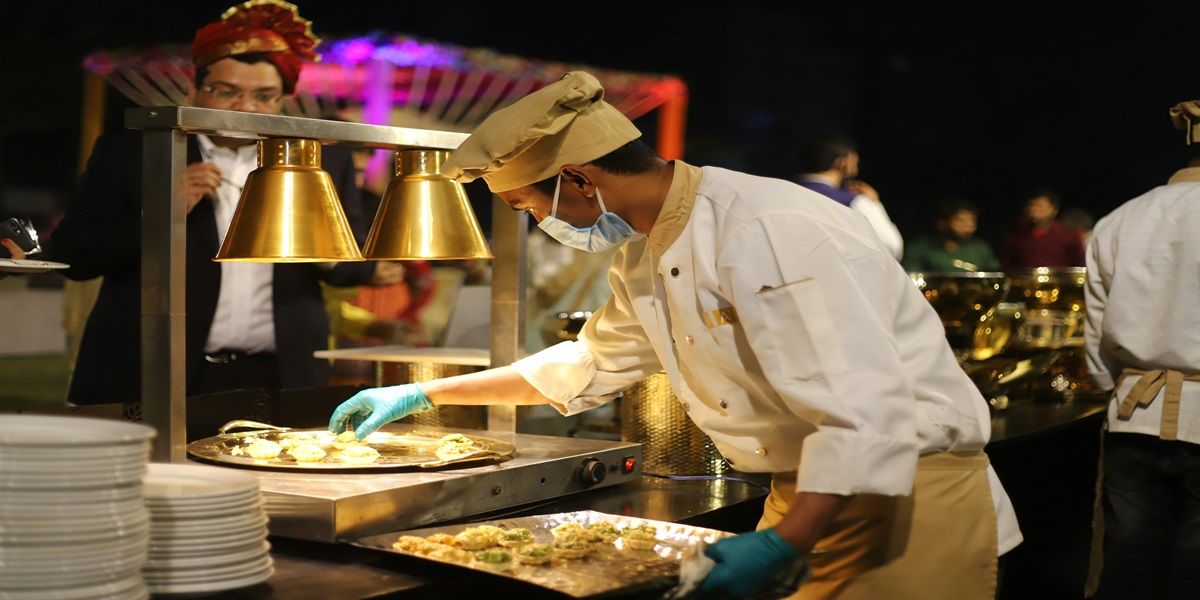From Kitchen to Reception: Managing Catering Challenges with Ease
Introduction
Catering is the backbone of any successful event, whether it’s a wedding, corporate gala, or community gathering. The journey from kitchen to reception venue involves a myriad of challenges that require careful planning, execution, and flexibility. This article delves deep into the intricacies of catering management, offering insights and practical tips to navigate these challenges with ease.
Understanding Your Client’s Needs
The foundation of successful catering begins with a thorough understanding of the client’s expectations and vision for the event. Before any preparations commence, effective communication is essential to grasp the desired atmosphere, theme, and culinary preferences. Whether it’s an intimate gathering or a grand celebration, aligning catering choices with client expectations sets the stage for a seamless event.
Menu Planning: Balancing Creativity and Practicality
Crafting a menu that delights guests while accommodating various dietary preferences and logistical constraints requires a delicate balance of creativity and practicality. A diverse menu that showcases culinary expertise while ensuring efficient preparation and service is key. Factors such as seasonality, venue capabilities, and guest demographics all influence menu decisions. Incorporating local and sustainable ingredients not only enhances flavor but also aligns with modern preferences for eco-conscious dining experiences.
Logistics: The Backbone of Seamless Service
Behind every successful catering operation lies meticulous logistics planning. From sourcing high-quality ingredients to coordinating delivery schedules and managing inventory, effective logistics ensure that the kitchen operates smoothly. Transportation logistics are equally critical, especially for off-site events where timely delivery of prepared dishes and equipment is paramount. On the day of the event, detailed setup plans and coordination with venue staff ensure that every aspect of the catering service aligns seamlessly with the event timeline.
Staffing: The Human Element
The caliber of service provided by catering staff can significantly influence guest satisfaction and event success. Hiring experienced and reliable personnel, from chefs to servers and bartenders, is crucial. Training sessions that emphasize service excellence, food safety practices, and effective communication prepare staff to handle various challenges with professionalism. During the event, efficient staff management and clear communication channels ensure that guests receive attentive service and logistical issues are addressed promptly.
Venue Challenges: Adapting to Different Spaces
Each event venue presents unique challenges that can impact catering operations. Whether it’s a historic mansion with limited kitchen facilities or a sprawling outdoor venue with varying weather conditions, adaptability is key. Conducting thorough site visits and collaborating closely with venue managers enable caterers to anticipate challenges and implement solutions proactively. Flexible menu options and versatile service setups further enhance the ability to accommodate venue-specific requirements while maintaining service excellence.
Catering to Dietary Needs: Beyond the Basics
In today’s culinary landscape, catering to diverse dietary preferences and restrictions is essential. From vegetarian and vegan options to gluten-free and allergen-sensitive menus, offering inclusive dining experiences demonstrates commitment to guest satisfaction and well-being. Clear communication with clients regarding dietary needs during the planning phase allows caterers to tailor menus accordingly and ensure that every guest enjoys a memorable dining experience without compromise.
Technology in Catering: Streamlining Operations
Advancements in technology have transformed the catering industry, offering innovative solutions to enhance operational efficiency and client satisfaction. Online ordering systems and digital menu platforms simplify the ordering process and facilitate real-time communication between clients and caterers. Inventory management software optimizes ingredient procurement and minimizes waste, while event management tools streamline scheduling, staffing, and logistics coordination. Embracing technology not only improves service delivery but also enhances the overall client experience by offering seamless and transparent communication channels.
Crisis Management: Handling the Unexpected
Despite meticulous planning, unforeseen challenges can arise during catering events. Effective crisis management strategies empower caterers to respond swiftly and decisively to unexpected circumstances, such as last-minute guest count changes, equipment malfunctions, or inclement weather. Maintaining open lines of communication with clients and venue partners allows for collaborative problem-solving and alternative arrangements when necessary. Preparedness, flexibility, and a proactive approach enable caterers to mitigate disruptions and uphold service standards, ensuring a successful event experience for all stakeholders involved.
Sustainability: Catering with a Conscience
As societal awareness of environmental sustainability grows, catering practices are increasingly scrutinized for their ecological impact. Adopting sustainable practices, such as sourcing locally grown produce, minimizing food waste through portion control and composting, and using biodegradable serving ware, not only reduces the carbon footprint but also resonates positively with environmentally conscious clients and guests. Incorporating sustainability into catering operations aligns with modern consumer values and enhances the reputation of catering businesses as responsible corporate citizens committed to environmental stewardship.
Conclusion
Managing catering challenges effectively requires a multifaceted approach that combines meticulous planning, strategic decision-making, and responsive execution. By prioritizing client communication, embracing culinary creativity, optimizing logistics, and leveraging technological innovations, caterers can navigate the journey from kitchen to reception with confidence and ease. Adapting to venue-specific requirements, accommodating diverse dietary needs, and maintaining a commitment to sustainability further enhance the ability to deliver exceptional catering experiences that exceed client expectations and leave a lasting impression on guests. Through continuous learning, adaptation, and dedication to service excellence, catering professionals can elevate every event into a memorable occasion that celebrates culinary artistry, hospitality, and the joy of communal dining experiences.














Leave a Reply